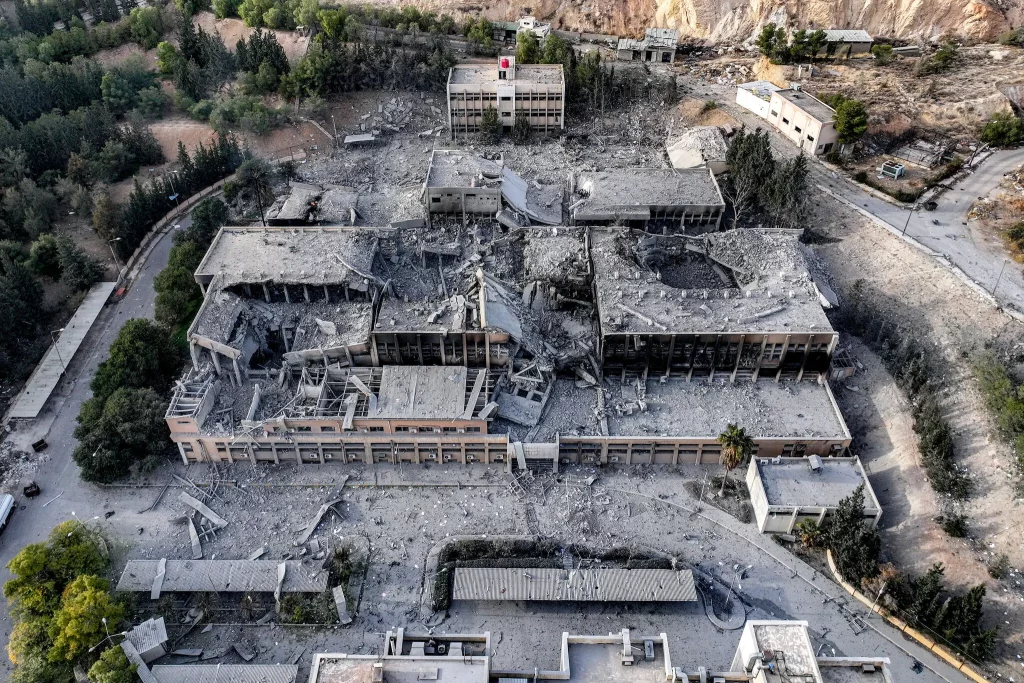Syria: Israel’s strategy to create another failed state

Israel’s strategy in Syria seems to be to create another failed state in the region plagued by infighting and violence to secure its own security.
Similar to the result of the US-led invasion of Iraq in 2003 and the NATO intervention in Libya, Israel wants Syria to be systematically weakened, ensuring it stays under Israeli control, devoid of a central democratic government, and mired in sectarian conflict, according to a London-based Qatar friendly news outlet.
According to a speech by Israeli Prime Minister Benjamin Netanyahu, Israel has three aims in Syria in their pursuit of an expansionist agenda. Reported by Middle East Eye, the new Syrian government could not deploy forces south of Damascus. Secondly, Netanyahu positioned Israel as the protector of minority communities in Syria. Thirdly, that Israel is “indefinitely” committed to occupying Syrian land.
His overarching goal, therefore, is the systematic fragmentation of Syria through adopting a divide-and-rule tactic, along with exercising military might to occupy territory illegally under international law – a move it has committed already in the Occupied Palestinian Territories and Lebanon.
Syrian rebel group Hay’at Tahrir al-Sham came to power on December 8th, 2024 after the collapse of the dictatorial regime of Bashar al-Assad. Whilst “Syrians could be seen dancing, singing and playing drums” that recalled the early days of the Arab Spring, the Israeli government were planning military incursions into the state. 48 hours after the fall of Assad, Israeli launched their most extensive aerial military campaign in its history against a neighbouring country.
Operation “Bashan Arrow” saw 350 Israeli Air Force combat aircraft strike over 300 strategic military targets across Syria, including the capital of Damascus, in a move it justified in self-defence. With an organization blacklisted in the West now in power in Syria, Israel wiped out 70 percent of Syria’s military assets, to stop powerful equipment landing in the hands of registered terrorists.
However, analysts have argued that by decimating military infrastructure, Israel has simply left the country vulnerable to fragmentation and foreign influence. As the new government lacks the monopoly on force and violence, the security vacuum created by Israel encourages non-state actors and militias through the lack of consequence. Such a development would mirror Libya’s “chaotic patchwork of armed factions, with foreign powers supporting competing groups for their own strategic ends.”
Regarding supporting competing groups, Israel’s claim to support ethnic and religious minorities at risk in Syria from the new government also injects anxiety and fear into an already fragmented society who have suffered 15 years of sectarian violence. Israel’s strategy aims to encourage secessionist groups in the north of Syria, namely the Kurds, to challenge the government in order to fragment the country, with Amichai Chikli, Minister of Diaspora Affairs tweeting, “The good news is the strengthening of the Kurds and the expansion of their control in the northeast of the country.”
Israel’s “alliance of minorities” doctrine helps them forge alliances with minorities who fear the rule of the Sunni majority. Following sectarian clashes between the Alawite community in the coastal region of Syria and militias associated with the Sharaa government, Israeli Defence Minister Israel Katz wrote on X that the atrocities showed Sharaa had revealed his “true face” as a jihadist, further inciting fear of sectarian reprisals by the Sunni community.
Katz added, reported by the BBC, “We are obligated to our Druze brothers in Israel to do everything to prevent harm to their Druze brothers in Syria, and will take all the necessary steps to maintain their safety,” the statement said, describing Syria’s new government as a “terrorist regime of extreme Islam.”
Netanyahu’s third stated goal is perhaps the most revealing of Israel’s true agenda in Syria: the occupation of Syrian territory. The Golan Heights, a relatively abandoned desert region between the two countries, was annexed by Israel in 1981, a move condemned by the United Nations. Since Assad’s fall, Israel has extended its control, even seizing a UN-monitored buffer zone.
Netanyahu stated unequivocally that “the Golan will be part of the State of Israel for eternity,” underscoring Israel’s strategy of territorial expansion whilst leveraging Syria’s instability to solidify its position.
The New Arab suggested in December 2024 that Assad and Israel engaged in alleged covert dealings, where it was tacitly understood that Israel would retain the Golan Heights and Assad would remain a “troublesome yet predictable neighbour.”
However, as his regime fell and a new one promising democratic transition emerged, Israel’s strategy collapsed and the government scrambled to exert their influence and domination over Syria again. A democratic Syria would likely involve swathes of pro-Palestinian support, as well as a strengthening and uniting Sunni-majority country to its north.
So, Israel is likely engaging in a systematic campaign of state-weakening, hoping to keep Syria in a spiral of internal strife so as to delay or stop any move the country may make towards the south, the Golan Heights, or Israel itself. The far-right in Israel obviously have territorial expansion at the heart of their politics, urging a return to the glory days of Greater Israel. Netanyahu’s policy of military occupation of Syrian territory thus provides a means of appeasing the far-right whilst also presenting an image as a protector of the Israeli people by creating a larger buffer-zone between themselves and post-Assad Syria.
Middle East Eye, Maghrebi, BBC, The New Arab
Want to chase the pulse of North Africa?
Subscribe to receive our FREE weekly PDF magazine













